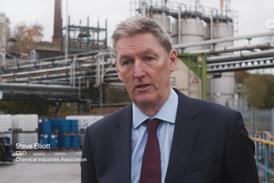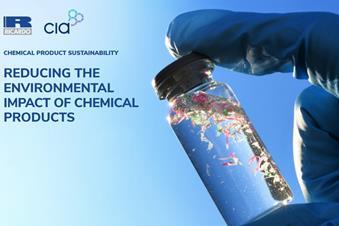The UK chemical sector presents distinctive decarbonisation challenges due to its scale, complexity, and hard-to-abate emissions. Sustainability reporting standards must strike a careful balance between transparency and practicality, taking into account sector-specific realities and global supply chains. Ongoing collaboration between government and industry is crucial to ensure these frameworks drive meaningful progress without creating undue burdens.
The UK government is advancing its plans to implement the UK Sustainability Reporting Standards (UK SRS), creating a comprehensive framework to enhance the quality, consistency, and comparability of sustainability disclosures across UK businesses. Building on existing regulations and aligned with international standards, UK SRS aims to deliver decision-useful information to investors and stakeholders while reinforcing the UK’s position as a global leader in sustainable finance. The current consultation seeks expert input on practical implementation, anticipated costs and benefits, and guidance for applying UK SRS, with a particular focus on standards S1 and S2.
The Chemical Industries Association (CIA) recognises that robust reporting frameworks can strengthen the business case for decarbonisation in the chemical sector – but only if they provide flexibility. Companies must be able to apply the most accurate and representative methodologies and include narrative context alongside reported data. This approach helps stakeholders understand assumptions, calculation methods, and the inherent uncertainties involved in reporting indirect emissions, particularly Scope 2 and 3.
Subsidiaries of foreign multinational groups require additional consideration. Many already disclose sustainability risks at the group level under internationally recognised frameworks such as International Sustainability Standards Board (ISSB), Corporate Sustainability Reporting Directive (CSRD), Task Force on Climate Related Financial Disclosures (TCFD), and Securities and Exchange Commission (SEC). Requiring additional subsidiary-level reporting would create duplication, increase costs, and deliver limited additional value.
The CIA broadly supports the four amendments proposed by the Technical Advisory Committee (TAC), which make UK SRS more practical and implementable:
1. Extend climate-first relief to two years: This allows companies to prioritise climate disclosures before addressing broader sustainability topics, easing initial reporting burdens and reflecting resource constraints.
2. Remove mandatory GICS classification: Eliminating this requirement reduces unnecessary licensing costs and aligns reporting with companies’ existing internal systems.
3. Remove fixed effective date: A flexible timetable enables coordinated planning for systems, data collection, and assurance capacity, supporting a smoother transition to mandatory reporting.
4. Provide clear sequencing guidance: Particularly for Scope 3 reporting and alignment with FCA timetables, phased guidance will help ensure practical implementation across the sector.
In theory, UK SRS has the potential to streamline overlapping reporting frameworks, including TCFD, SECR, and Financial Conduct Authority (FCA) requirements, reducing duplication while improving comparability for investors. Alignment with international standards will strengthen the global competitiveness of UK chemical companies and embed sustainability into long-term investment planning and strategic decision-making. It will also enhance transparency on Scope 3 emissions across complex global supply chains.
At the same time, implementation will involve additional costs, including staff training, system upgrades, data collection across multiple value chains, and third-party assurance, particularly for Scope 3 emissions. Careful framework design and proportionate implementation will be critical to ensure that the benefits outweigh administrative burdens. Support for smaller businesses will be essential, with sector-specific guidance, reporting templates, online training, and centralised data platforms helping to reduce compliance costs, improve data quality, and strengthen supply chain transparency.
The chemical sector is complex, producing thousands of products with emissions that are ‘hard-to-abate’. Decarbonisation is inherently challenging, but well-designed reporting standards can deliver credible, decision-useful disclosures, strengthen investor confidence, and enable the sector to contribute effectively to the UK’s net zero ambitions. Achieving this will depend on proportionate design, international alignment, and ongoing consultation with industry as the framework is finalised.





















